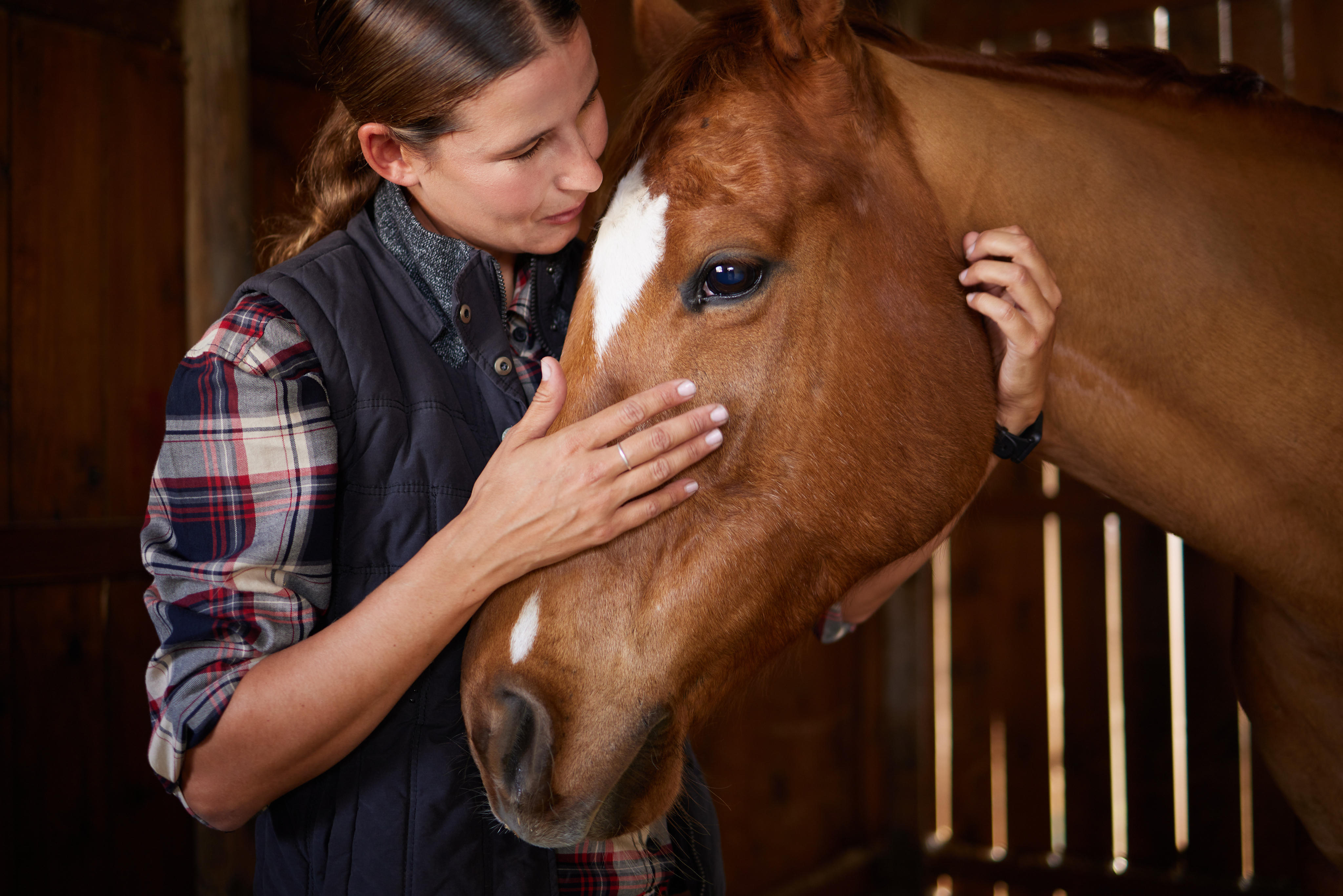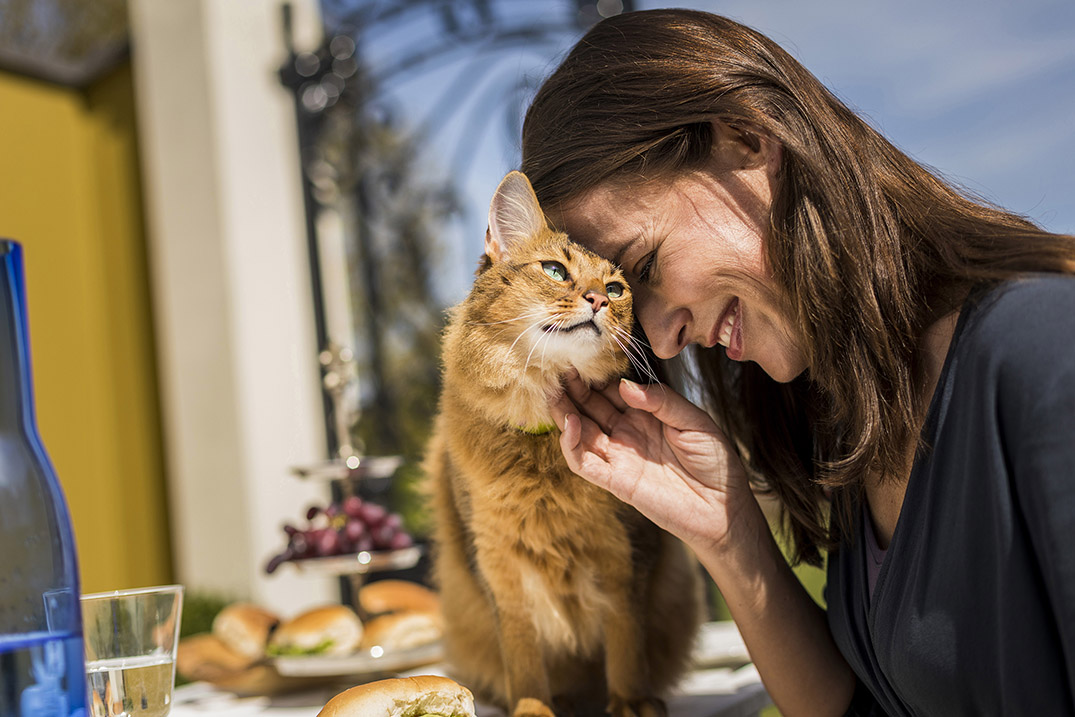Vaccinations – Protect your mare’s unborn foal.
There’s a lot at stake when your mare is pregnant. Not only do you want to keep her healthy and strong, you also want to protect the life of the unborn foal. Talk with your veterinarian early on about a vaccination plan for your broodmare.
Prior to Breeding
Before you breed, make sure your mare is current on all core vaccines. Core vaccines, as defined by the American Association of Equine Practitioners, have clearly demonstrated efficacy, safety and a high level of benefit and low level of risk to justify their use in all horses.
CORE VACCINES FOR ALL HORSES
RISK-BASED VACCINES
Ensure mares are current on equine influenza virus (EIV) and equine herpesvirus types 1 and 4 (EHV-1&4). Consult your veterinarian regarding vaccination protocols for S. equi (strangles), Potomac horse fever (PHF) and equine viral arteritis (EVA).
During Gestation
VACCINATE FOR EHV-1
An important safeguard during your mare’s pregnancy is immunization against equine herpesvirus 1 (EHV-1) at the beginning of the fifth, seventh and ninth months of gestation. EHV-1 is the leading cause of infectious viral abortions in mares.
EHV-1 is typically associated with late-term abortions and the delivery of a well-preserved fetus and outwardly normal placenta. Most horses become infected with EHV-1 during the first year of life. In the majority of cases, the virus becomes latent, just waiting for stress-induced reactivation. Sources of infection for pregnant broodmares include clinically ill horses shedding the virus in nasal secretions; asymptomatic horses experiencing reactivation of latent infection; or virus-laden uterine secretions and placenta/fetus from mares aborting due to EHV-1 infection.
To reduce the risk of EHV-1 abortion, vaccinate your mare with Prestige® Prodigy® at the start of months 5, 7 and 9 of gestation. All horses in close contact with broodmares – such as barren mares, stallions and teaser stallions – should also be maintained on a rigorous EHV-1 vaccination program. It’s also important to reduce your pregnant mare’s exposure to groups of young horses and any new arrivals that may be shedding EHV-1. Consult your veterinarian for more information on vaccinating with Prestige® Prodigy®.
BOOSTER VACCINATIONS 4 TO 6 WEEKS BEFORE FOALING1
It is important to administer pre-foaling booster vaccinations to stimulate the mare to produce high levels of protective antibodies at a time during late pregnancy when she is also producing antibody-rich colostrum. The newborn foal relies on ingestion of colostrum and absorption of these antibodies during the first 12 to 24 hours of life for protection against a wide variety of viral and bacterial diseases during the early post-natal period.
Booster your mare for equine herpesvirus (EHV-1&4), eastern and western encephalomyelitis (EEE/WEE), tetanus, influenza and West Nile virus (Prestige® 5+WNV). Also add rabies (Prestige® Equirab®) if not administered pre-breeding.
Quick Guide to Vaccinating During Gestation
| Gestation Period | Recommended Vaccinations*1 |
|---|---|
| 5 months of gestation | EHV-1 (reproductive protection) Prestige® Prodigy® |
| 7 months of gestation | EHV-1 (reproductive protection) Prestige® Prodigy® |
| 8 months of gestation | First dose of Rotavirus in 3-dose series If mare is not currently on botulism vaccination, begin a 3-dose series with 4 weeks between doses. |
| 9 months of gestation | EHV-1 (reproductive protection) Second dose of Rotavirus vaccine Second dose of Botulism vaccine Prestige® Prodigy® |
| 10 months of gestation (pre-foaling) | Rabies (if not given pre-breeding), EWT, WNV, EIV, EHV 1&4 (respiratory protection) Third dose of Rotavirus vaccine Third dose of Botulism vaccine Strangles IM Potomac Horse Fever Prestige® EquiRab® Prestige® 5 + WNV |
*Talk to your veterinarian about which at-risk vaccines your mare should receive. Vaccinations against strangles, Potomac horse fever, botulism and rotavirus are recommended only if there is a high risk of disease in your region or on your farm. If your mare will be sent to another farm for re-breeding, consider the risk of disease on that farm as well, and plan your vaccinations accordingly.
References
- Adapted from AAEP core and risk-based vaccination guidelines.




 Go To United States
Go To United States Algeria
Algeria Argentina
Argentina Australia
Australia Austria
Austria Bahrain
Bahrain Belgium (Dutch)
Belgium (Dutch) Brazil
Brazil Canada (English)
Canada (English) Chile
Chile Colombia
Colombia Croatia
Croatia Czech Republic
Czech Republic Denmark
Denmark Ecuador
Ecuador Egypt
Egypt Finland
Finland France
France Germany
Germany Greece
Greece Hungary
Hungary India
India Indonesia
Indonesia Iraq
Iraq Ireland
Ireland Israel
Israel Italy
Italy Japan
Japan Jordan
Jordan Kuwait
Kuwait Lebanon
Lebanon Malaysia
Malaysia Mexico
Mexico Morocco
Morocco Netherlands
Netherlands New Zealand
New Zealand Norway
Norway Oman
Oman Panama
Panama Peru
Peru Philippines
Philippines Poland
Poland Portugal
Portugal Qatar
Qatar Romania
Romania Russian Federation
Russian Federation Saudi Arabia
Saudi Arabia South Africa
South Africa South Korea
South Korea Spain
Spain Sweden
Sweden Switzerland (French)
Switzerland (French) Taiwan
Taiwan Thailand
Thailand Tunisia
Tunisia Turkey
Turkey Ukraine
Ukraine United Arab Emirates
United Arab Emirates United Kingdom
United Kingdom Uruguay
Uruguay Yemen
Yemen Global
Global